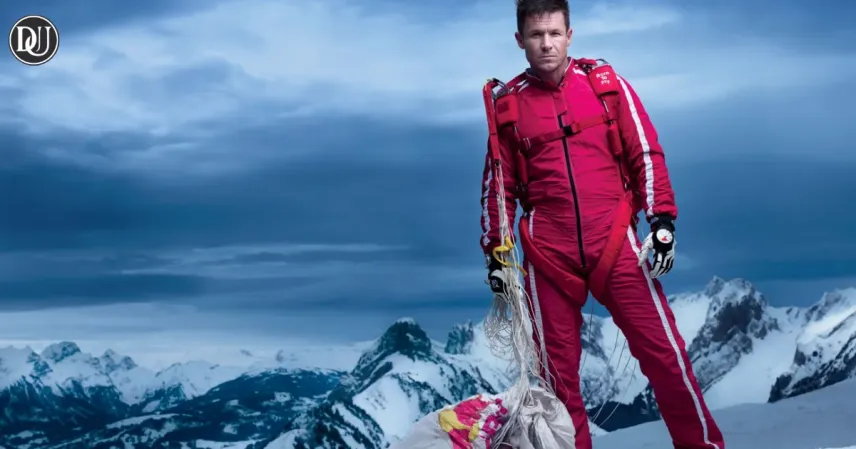Did you ever think about Felix Baumgartner, the guy who jumped from basically the edge of space, and how he faced that immense, almost unimaginable risk head-on? Honestly, it’s one of those feats that just stuck with me – like, humanity pushing physical and mental boundaries, right? You’d imagine someone who pulled that off, breaking the sound barrier with his own body, would probably, you know, live forever or at least retire to a quiet life far from any kind of real danger. But then you hear news like this… it just hits different. The man who conquered the stratosphere, who literally fell faster than sound, passed away doing something that, while still adventurous, feels almost mundane by comparison: paragliding.
It happened in Italy, in the Dolomites, a place known for its stunning beauty but also its challenging terrain. He was only 54. It’s hard to process, honestly. Someone who navigated the extreme vacuum of near-space, the unimaginable cold, the sheer speed – only to, well, lose his life in a paragliding accident. It’s a stark reminder, I guess, that life just throws these curveballs when you least expect them, even for people who seem to defy all odds.
Falling from the Edge of Space 🌌
Remember that jump from 24 miles up, back in 2012? The Red Bull Stratos project. It was insane. Everyone was glued to their screens, watching this tiny human capsule ascend higher than any plane could fly, into a black sky where you could literally see the curvature of the Earth. I remember thinking, “Is this really happening?” He stepped out of that capsule, a speck against the vastness, and just… fell. He broke several records that day: highest freefall, first person to break the sound barrier without a vehicle, fastest freefall. It was a moment of pure, unadulterated human daring. He spent nearly four and a half minutes in freefall before deploying his parachute. That kind of mental fortitude, to remain stable and conscious while accelerating to supersonic speeds, it’s just beyond what most of us can even comprehend. It made him a legend, almost immediately, a modern-day Icarus who actually flew, and landed.
The Unthinkable Irony 🪂
Here’s the thing that really gets me: the perceived danger versus the actual outcome. He meticulously prepared for years for the space jump, with a huge team of scientists and experts, a custom-built capsule, a specialized suit designed to protect him from conditions no human had experienced unprotected. Every single variable was calculated, every risk mitigated to the nth degree. It was a controlled, scientific mission, despite its daredevil appearance. And then, he dies paragliding. Paragliding, while certainly an extreme sport with its own risks, feels almost pedestrian compared to jumping from space. It’s not about undermining paragliding’s dangers, not at all, but the contrast is just so stark. It’s like a superhero being tripped by a shoelace, you know? It makes you wonder about fate, about how sometimes the biggest, most obvious threats are survived, while the smaller, more familiar ones can be the undoing.
More Than Just a Jump 🧠
You have to think about the mindset of someone like Baumgartner. He wasn’t just a stuntman; he was a serious athlete, a former military parachutist, and a renowned BASE jumper. He had literally jumped from some of the world's most iconic structures. This wasn’t just about adrenaline for him, I don’t think. It was about pushing limits, understanding what the human body and mind could endure. He talked about the mental challenges of the space jump, the fear, the isolation, but also the incredible focus required. He described a moment of vulnerability right before the jump, feeling a moment of unease, but then just switching into professional mode. That kind of mental discipline is just... incredible. It really makes you reflect on what drives people to pursue such high-stakes endeavors.
A Life Defined by Extremes 🚀
His entire adult life, really, was about gravity and pushing against its normal rules. From his early days in the Austrian military, honing his parachuting skills, to setting records in BASE jumping from cliffs and buildings across the globe – like the Christ the Redeemer statue in Rio, or the Taipei 101 skyscraper. He had this unique relationship with falling, a mastery of it, if that makes sense. It’s almost poetic how his life began with a childhood dream of flying, and then became this perpetual act of calculated descent. He basically made a career out of defying expectations and pushing the envelope of human capability.
The Final Descent 🇮🇹
The reports mentioned he felt unwell before the flight. That's another layer to this, isn't it? The Times of India article mentioned it specifically. Could be wrong, but it makes you wonder if that played any role, or if it was just an unfortunate coincidence. Paragliding, especially in mountainous regions, has a lot of variables – wind conditions, thermals, sudden changes in weather. It’s not as controlled as, say, a static line jump. Italy is mourning, and it’s a big deal there, obviously. It’s a tragic end for a man who became a global figure for his audacity and precision. It feels... incredibly unfair, after all he achieved, to die in such a way, almost quietly compared to the spectacle of his most famous feat.
Beyond the Headlines 💭
It really makes you think about the concept of risk and personal ambition, doesn't it? Here's someone who meticulously planned and executed the most dangerous jump imaginable, survived it, and then passed away doing a sport that, while dangerous, is perhaps less globally scrutinized. It's a reminder that even the most prepared, the most skilled, aren't immune to the unpredictable nature of life. It’s a loss for the extreme sports community, and for anyone who was inspired by his incredible achievements. A true pioneer, gone too soon. Just randomly popped into my head and I had to tell you. It’s wild.








